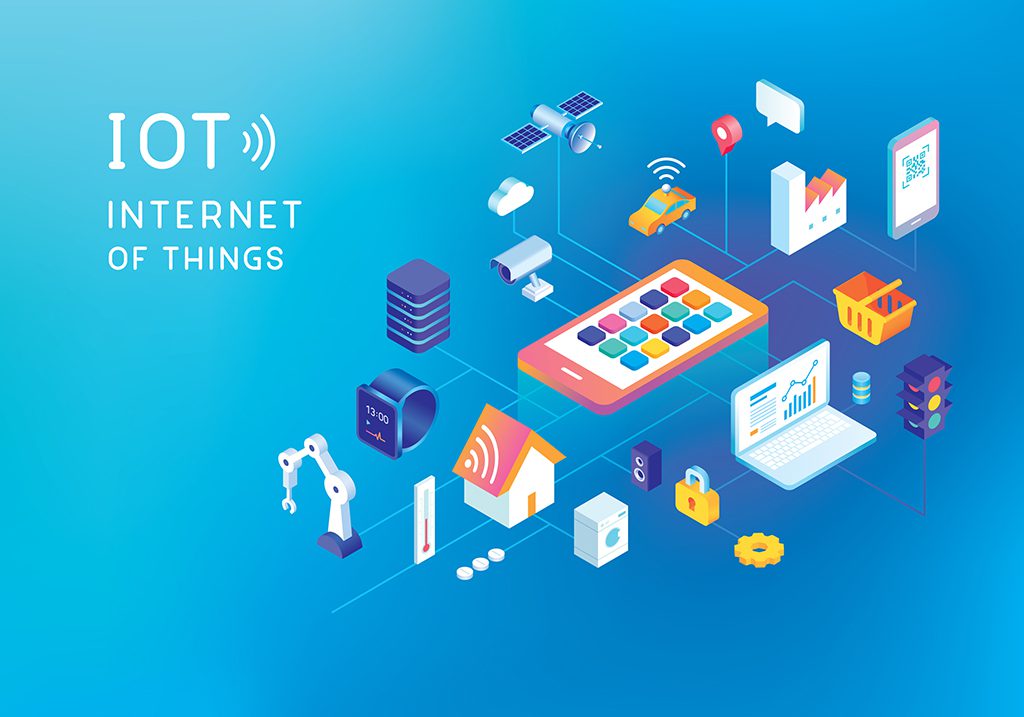The Internet of Things (IoT) is a network of physical devices, vehicles, buildings, and other objects that are connected to the internet to collect and exchange data. With over 50 billion connected devices estimated by 2020, the scope of IoT expands to transform various industries from healthcare to transportation and manufacturing. The potential benefits include insights into customer behavior, improved efficiency, automated tasks, and safety and security. However, security and privacy concerns must be addressed, and industry standards must be established for effective communication and data exchange. The IoT will impact the workforce, automating routine tasks while creating new jobs. Analytics will be crucial in collecting and analyzing data and will continue to shape the future of the IoT, introducing innovation and growth in industries, and changing the way we live and work.
1. What is the Internet of Things (IoT)?
The Internet of Things, or IoT for short, refers to a network of physical devices, vehicles, buildings, and other objects that are connected to the internet. Through these connections, these devices are able to collect and exchange data to improve efficiency, convenience, and productivity in various industries.
2. The Scope of the IoT
The scope of the IoT is constantly expanding. It has been estimated that there will be over 50 billion connected devices by 2020. This will have a transformative effect on many industries, from healthcare to transportation to manufacturing, and beyond.
3. The Potential Benefits of the IoT
The potential benefits of the IoT are vast. By collecting and analyzing data from various sources, businesses can gain insights into consumer behavior, improve efficiency, automate routine tasks, and improve safety and security.
4. The Challenges of the IoT
The IoT also presents a number of challenges. The sheer number of devices, the amount of data they produce, and the need to keep all these devices secure are just a few of the obstacles that need to be overcome.
5. Security and Privacy Concerns
As more and more devices are connected to the internet, security and privacy concerns are becoming increasingly important. Cyberattacks that target IoT devices can have serious consequences, from data breaches to physical harm.
6. The Role of Standards in the IoT
Standards are essential for ensuring that different devices can communicate with each other and exchange data effectively. Without standards, the IoT could become a fragmented, inefficient mess.
7. The Impact of the IoT on the Workforce
The IoT will have a significant impact on the workforce. Many routine tasks will be automated, and new types of jobs will be created as businesses seek to make the most of the opportunities presented by the IoT.
8. The Importance of Analytics in the IoT
Analytics will play a crucial role in the IoT. By collecting and analyzing vast amounts of data from different sources, businesses will be able to gain insights into customer behavior, identify trends, and make more informed decisions.
9. The Future of the IoT
The future of the IoT is bright. As more devices are connected and more data is collected, the potential for innovation and growth is enormous. The IoT will continue to transform industries and change the way we live and work.
10. Conclusion
The Internet of Things is one of the most exciting and transformative technologies of our time. While there are challenges and obstacles to be overcome, the potential benefits are enormous. As businesses and consumers alike become increasingly connected, the IoT will continue to evolve and shape the world around us.
